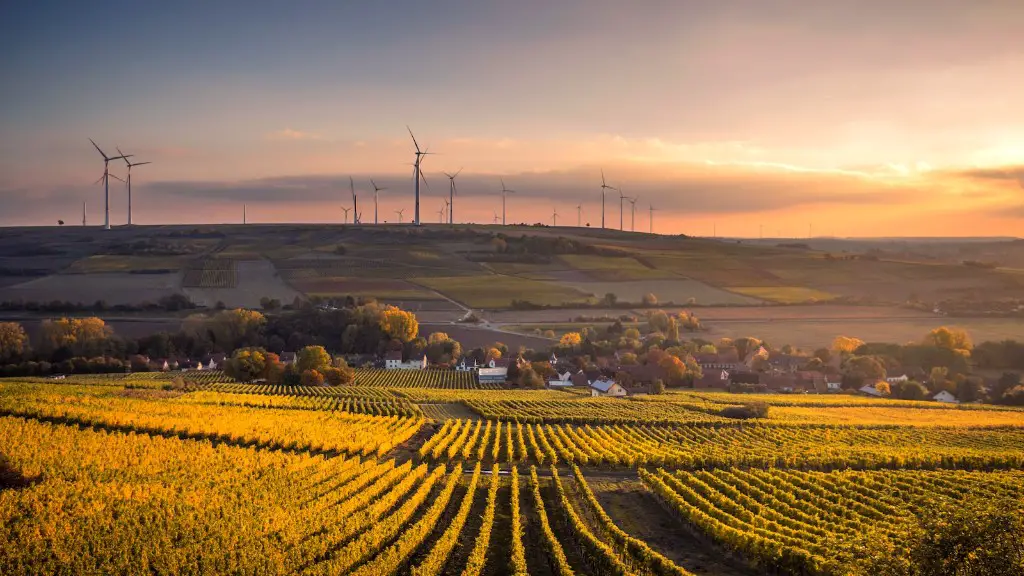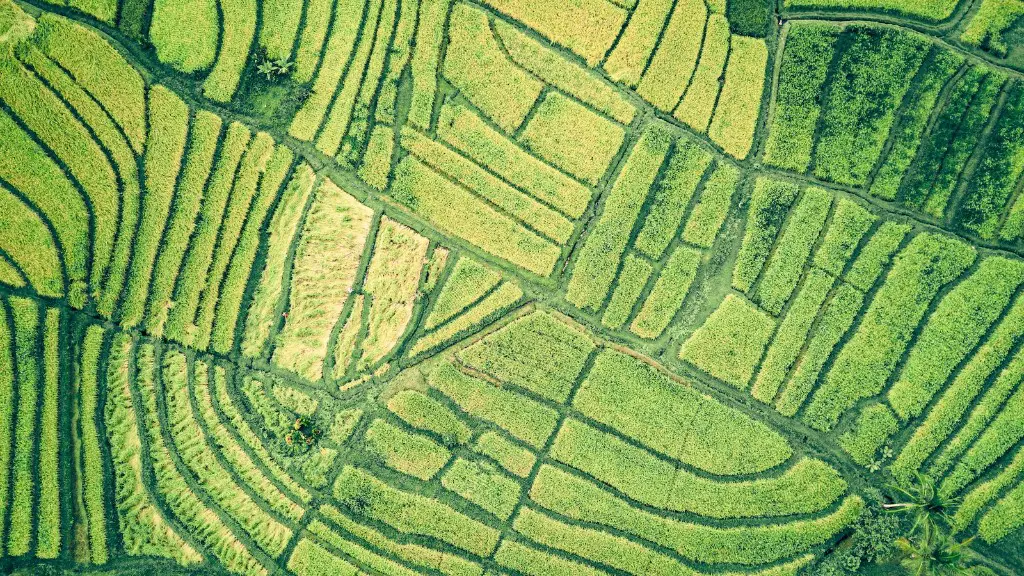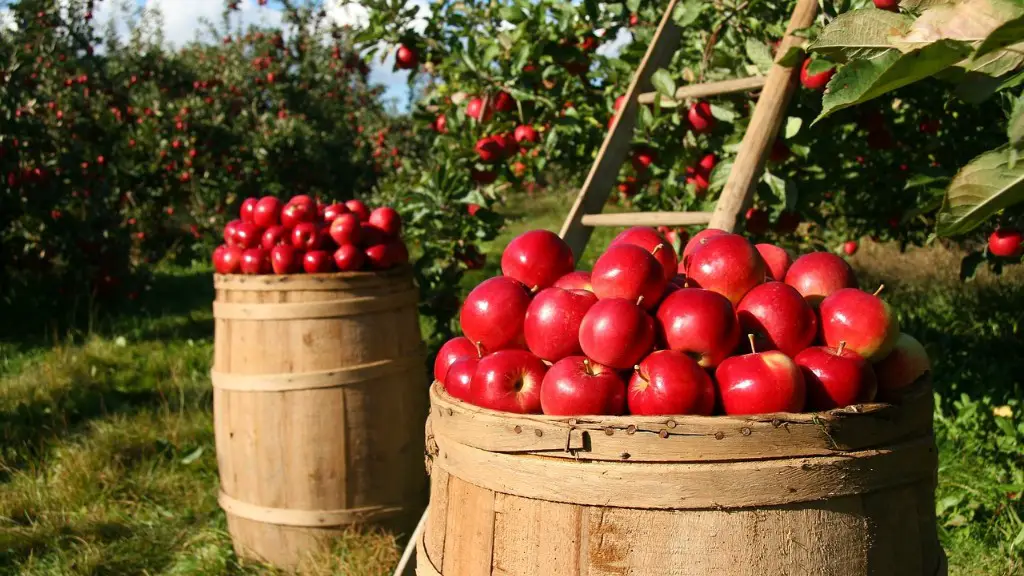Agriculture is a major source of water pollution worldwide. Contamination of water sources from agricultural chemicals, animal waste, and soil erosion are the primary sources of agricultural water pollution. Although there is much debate on the exact amount of water pollution caused by agricultural activities, there is no doubt that it is a significant problem that must be addressed.
Fertilizers, pesticides and herbicides used in agriculture can easily find their way into water sources and contaminate them. These chemicals, when absorbed by aquatic life or consumed by people, can cause serious effects to their health. Soil erosion due to certain agricultural activities can also contribute significantly to the contamination of nearby water sources. Eroded soil particles can be washed into nearby streams, rivers and lakes which can negatively affect the quality of the water.
Furthermore, animal waste that finds its way into water sources can contribute significantly to pollution. As animals urinate and defecate in areas near rivers, streams, and wetlands, it can contribute to water contamination. The waste from the animals can increase the amount of bacteria, nitrogen and phosphorus found in the water which can lead to an increase in algae and aquatic plants. This can result in a decrease in the quality of the water, and in extreme cases, cause death among the organism living in the water.
Agriculture can also leaching water with contaminants into water sources. These contaminants, such as nitrates or phosphates, can enter nearby water sources, alter the pH and reduce the oxygen available to bacteria and other aquatic organisms. In addition, they can also stimulate plant and algae growth, leading to a decrease in water quality.
Finally, agricultural runoff is a major cause of water pollution and can significantly affect water sources near agricultural areas. This runoff can contain fertilizers, animal waste, chemicals and soil. And when it finds its way into nearby water sources, it can cause an increase in bacteria, pathogens, and toxins, leading to a decrease in water quality and an increase in water-borne illnesses.
Agricultural Practices that Contribute to Water Pollution
The most common agricultural practices that contribute to water pollution are over-application of chemicals, operation of intensive and concentrated animal feeding operations, and improper disposal of animal waste.Over-application of chemicals is when farmers apply more fertilizer or pesticides than is recommended, which can leach into nearby water sources and contaminate them. Improper disposal of animal waste can also contribute to water pollution. If not handled properly and disposed of in the right ways, animal waste can find its way into water sources, increase the amount of bacteria and cause a decrease in water quality.
Impact of Agriculture on Water Pollution
Agriculture contributes to water pollution in a variety of ways, from leaching of chemicals into nearby water sources, to animal waste entering water sources, and to sediment entering rivers and lakes. This can lead to a decrease in water quality, an increase in toxins and bacteria, and an increase in water-borne illnesses. In addition, the runoff from agricultural land can also contribute significantly to water pollution.
Preventing Water Pollution from Agriculture
The best way to prevent and reduce water pollution caused by agricultural activities is to practice sustainable agriculture and follow best management practices. Sustainable agriculture is a form of land management which minimizes environmental impact without decreasing the productivity of the land. It is important to practice crop rotation, reduce the use of chemical fertilizers, test soils regularly, and implement practices that limit soil erosion and runoff.
Mitigating Agricultural Water Pollution
In order to prevent and reduce the agricultural water pollution, governments should create policies and support programs that promote sustainable agricultural practices and stricter regulations for agricultural runoff. Furthermore, there should be more education for farmers about the effects of over-application of chemicals and animal waste, as well as more incentives for farmers to use sustainable practices. In addition, governments should provide support for research and development of new technologies that can reduce water pollution from agriculture.
Limiting Impact of Agriculture on Water Pollution
There are several ways to reduce the impact of agriculture on water pollution, such as using cover crops, crop rotation, and buffer zones. Cover crops can be used to slow down runoff and reduce the amount of soil erosion, while crop rotation can reduce the need for chemicals and help maintain soil structure. Buffer zones are strips of land near water sources which can capture sediment, filter out chemicals, and prevent runoff from entering the water.
Reducing Agricultural Water Pollution
The best way to reduce agricultural water pollution is to reduce the use of chemicals, animal waste, and soil erosion. This can be done by implementing best management practices and following sustainable agriculture principles. Farmers should adopt more eco-friendly practices such as minimizing tillage, increasing crop rotation, reducing fertilizer use, and minimizing water runoff. In addition, governments should also provide more incentives for farmers who use sustainable practices.


